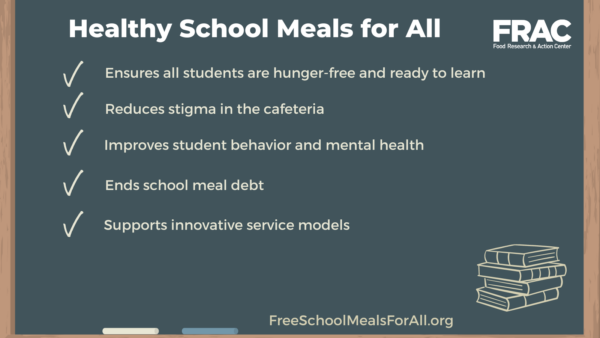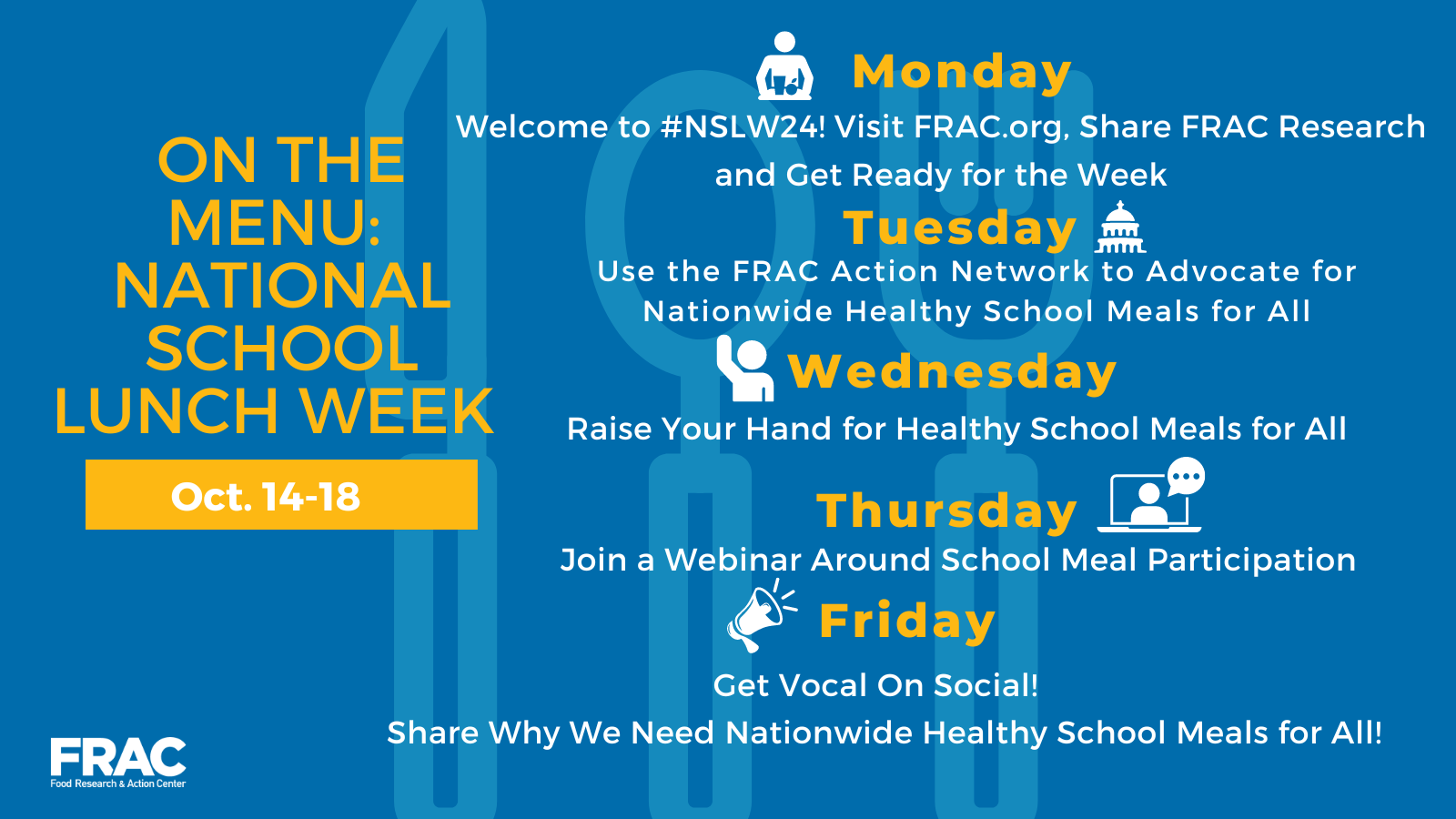October 15, 2024
This National School Lunch Week, the Food Research & Action Center (FRAC) is rallying support for a crucial initiative: a nationwide Healthy School Meals for All policy. This would ensure all students have access to the nutritious school meals they need to learn and thrive.
The Case for Healthy School Meals for All
Crystal FitzSimons, FRAC’s interim president, recently testified before the Senate Agriculture Subcommittee on Food and Nutrition, emphasizing the importance of investing in school meals. FitzSimons urged lawmakers to support the Universal School Meals Program Act ( S. 1568, H.R. 3204), stating, “Congress can ensure that all children nationwide are hunger-free and ready to learn while they are at school by allowing all schools to offer meals to all their students at no charge.”
This School Meals for All approach not only addresses immediate hunger but also lays the groundwork for healthier futures. Well-nourished children are better equipped to concentrate, engage, and excel academically, creating the foundation for lifelong success.
Spotlight on School Nutrition
FRAC was recently featured on HBO’s “Last Week Tonight with John Oliver,”, which praised the herculean effort school nutrition professionals give every day, while acknowledging the significant challenges that many schools have faced since returning to the system of certifying children for free, reduced-price, or paid school meals. Tight budgets and complex administrative hurdles complicate the implementation of the National School Lunch Program, while creating stigma around school lunch participation.
The episode highlighted FRAC’s research, which illustrates the potential Healthy School Meals for All has in combatting hunger and food insecurity among children. When barriers are dismantled and all children have access to nutritious school meals, participation increases, child food insecurity decreases, and school nutrition departments flourish.
Why It Matters

- Nutritional equity: School meals at no charge promote equity and ensure that all students have access to nutritious food.
- Academic success: Studies consistently show that access to nutritious meals correlates with better academic performance. When children are well-fed, they can better focus and actively participate in their education.
- Community impact: Strong school meals programs support a productive and healthy community. Research shows that when schools offer meals to all students at no charge, household food security increases as the family’s food budget can stretch even further. Additionally, school meals strengthen local economies by being a source of employment for adults and a partner for local farms and food producers.
Take Action and Get Involved

- Spread the word: Share FRAC research about the importance of school meals on social media and in your community. Use the hashtags #SchoolMeals4All, #SchoolMeals, and #NSLW24 to spread awareness. Make sure to tag FRAC @fractweets and @fracgram to amplify your message.
- Contact your representatives: Urge your congressional leaders to support the Universal School Meals Program Act (S. 1568/H.R. 3204) which would make Healthy School Meals for All a reality nationwide.
- Show your support: Share photos and videos of you and your colleagues raising your hands for Healthy School Meals for All. Tag @fractweets and @fracgram and use the hashtags #SchoolMeals4All and #NSLW24.
- Deepen your knowledge: On Thursday, October 17, join FRAC’s webinar with school nutrition partners across the country as we discuss how policies and practices are increasing school lunch participation. Register here.
- Get vocal on social: Keep the momentum going by sharing the John Oliver segment featuring FRAC research, Interim President Crystal FitzSimons’ testimony on the importance of school meals, or FRAC’s Healthy School Meals for All website, which maps states’ momentum around this vital movement.
Every child deserves access to nutritious meals that fuel their potential. By supporting Healthy School Meals for All policies, we can help create a brighter, hunger-free future for students.

